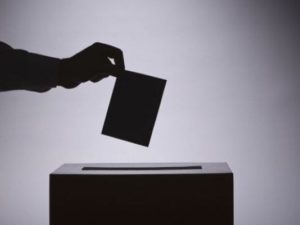This is what this election season has been like for me: I’m trapped in a never ending loop of “Who’s Afraid of Virginia Woolf”, watching my hosts savage each other, amazed at their capacity for violence, wondering when it will stop, desperate to go home.
For months, I’ve been saying I just want it to be over, but who am I kidding? I know that on Wednesday, whatever the result, it will not be over. I can’t really believe that we’ll all wake up on Wednesday morning and say, “Well, all right then. It’s settled. Let’s move on.” Our national discussion (if you can call the screeching, fear-mongering and doomsday scenarios emanating from all sides discussion) will simply enter a new phase, with new recriminations, new apocalyptic visions, new war cries.
This morning, as I face Election Day with no small amount of exhaustion and dread, I read Jesus’ parable of the wheat and the weeds. In this story, Jesus tells of a farmer who finds that an enemy has come and planted weeds among his crop of wheat. The problem is, this particular weed is indistinguishable from the wheat. The farmer cautions against trying to pull the weeds lest they pull the wheat with it. Wait, he says, until the harvest, then we can safely separate them. While not the primary meaning of the parable, this scripture got me thinking about what has been sorely missing in this election season: humility.
So many of the speeches, debates, media reports, Facebook posts, tweets and water cooler discussions we’ve had over the last 18 months traffic in absolutes. This is the victim, this is the villain. We are not satisfied to say others are wrong; they must also be evil. We give no quarter and we receive none. It’s as if we’re not secure enough in what we believe — in who we believe — to admit any nuance, subtlety of thought or admission of flaws.
But Jesus’ words offer no such binary choices. Wheat and weeds can look an awful lot alike, and we are not the final judge of which is which. We are asked to make a decision using the information we have, true. But can we admit that our knowledge isn’t perfect? Can we leave room for the possibility — however remote it seems — that we could be wrong?
So, we will vote for what we consider the wheat — the good seed, the desirable outcome. Or, maybe we will vote for the “least objectionable weed.” We will make our choice tomorrow, based on what we believe is best for our country. I pray that we can do this with the humility that says we might be wrong. Without it, we’re just trapped in the dinner party from hell.

